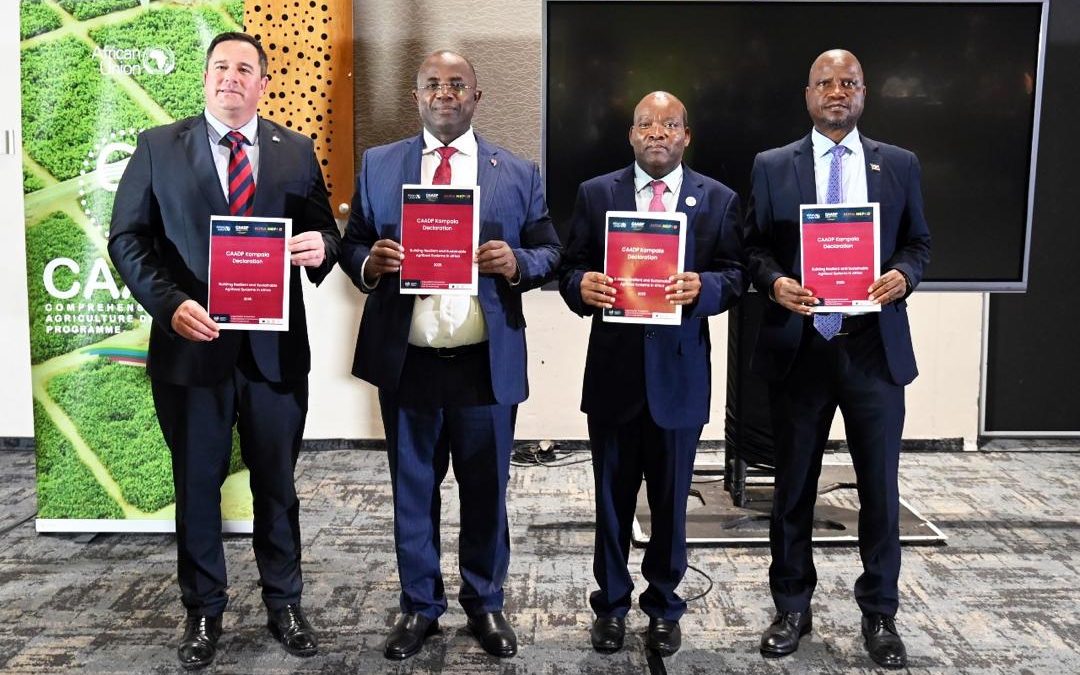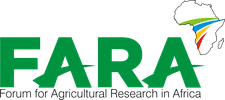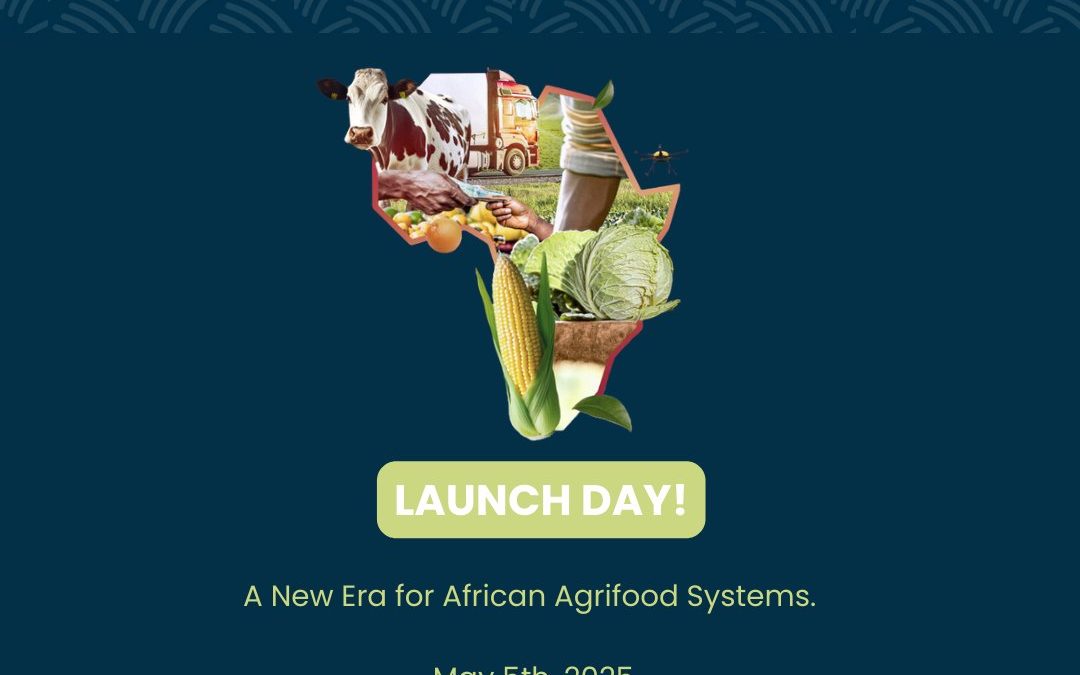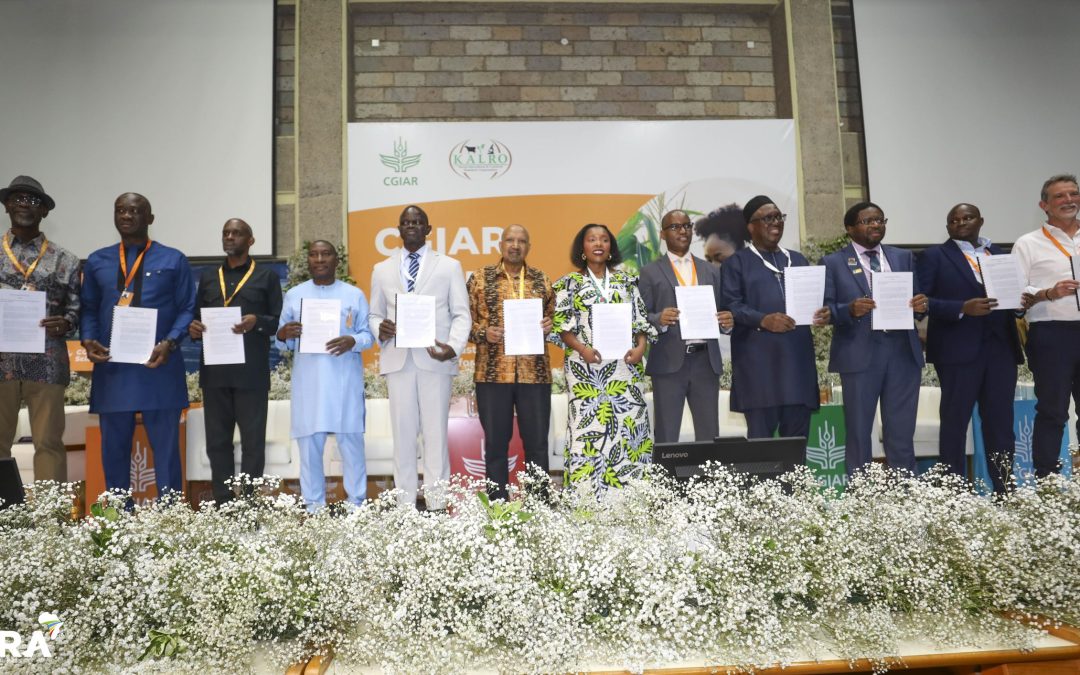
Africa Charts a New Path to Agri-Food Transformation with the Launch of the CAADP Strategy (2026–2035) and the Kampala Declaration
May 5, 2025 – Johannesburg, South Africa
Today, at the Radisson Hotel in Johannesburg, African leaders, stakeholders, and development partners celebrated a significant milestone in the continent’s agricultural journey with the official launch of the Comprehensive Africa Agriculture Development Programme (CAADP) Strategy and Action Plan (2026–2035) alongside the Kampala Declaration. The high-profile event was organised by the African Union Commission’s Department of Agriculture, Rural Development, Blue Economy and Sustainable Environment (DARBE) and the African Union Development Agency (AUDA-NEPAD).
This continental gathering attracted broad and diverse participation from AU Member States, Regional Economic Communities (RECs), civil society organisations, farmer groups, parliamentarians, youth and women’s networks, private sector actors, and development partners. Among the notable attendees were leaders of the AARIEI Partnership, including Dr. Aggrey Agumya, Executive Director of the Forum for Agricultural Research in Africa (FARA); Prof. Cliff Dlamini, Executive Director of CCARDESA; and Ms. Elizabeth Nsimadala, President of the East African Farmers Federation (EAFF) and Board Member of both FARA and the Pan-African Farmers’ Organisation (PAFO). Also present were the African Food Systems Parliamentary Network, Women Farmers’ Associations, representatives of non-state actors, and other senior staff and board members of the AARIEI consortium institutions.
Rallying Commitment: High-Level Remarks

H.E. John Steenhuisen, Minister of Agriculture for the Republic of South Africa
Opening the event, H.E. John Steenhuisen, Minister of Agriculture for the Republic of South Africa, delivered a reassuring welcome address. He applauded the appointment of the new AU Commissioner and urged African leaders to unite behind the six strategic objectives of the new CAADP plan. He emphasized intra-African trade, transformative programming for smallholder farmers, knowledge creation and sharing, data-driven planning, and digital technology adoption as cornerstones for agricultural progress.

H.E. Moses Vilakati, AUC Commissioner for Agriculture, Rural Development, Blue Economy and Sustainable Environment (DARBE)
H.E. Moses Vilakati, the newly appointed Commissioner for Agriculture, Rural Development, Blue Economy and Sustainable Environment at the AUC, inspired participants with the metaphor: “Let us all put our hands on deck to get the seed into a bountiful harvest.”

H.E. Nardos Bekele, CEO of AUDA-NEPAD delivering her remarks via Zoom
Additional remarks were delivered by: H.E. Nardos Bekele, CEO of AUDA-NEPAD, highlighting the strategic role of partnerships; Hon. Fred Bwino Kyakulaga, Minister of State for Agriculture of Uganda and Chair of the STC Bureau, who called for increased country ownership and alignment; Senior representatives from RECs such as SADC, ECCAS, and UMA; and Odd Eirik Arnesen, Chair of the Development Partners Coordination Group (DPCG), who reaffirmed the commitment of partners to support the strategy’s rollout.

Hon. Fred Bwino Kyakulaga, Minister of State for Agriculture of Uganda and Chair of the STC Bureau
The Strategic Blueprint: CAADP 2026–2035

Odd Eirik Arnesen, Chair of the Development Partners Coordination Group (DPCG)
The new CAADP Strategy and Action Plan was developed in response to the AU Assembly’s 2024 directive for a renewed continental agricultural vision. Building on lessons from Maputo and Malabo, it outlines six strategic objectives designed to address food security, mobilising investment, climate resilience, agro-industrialisation, inclusive growth, and improved governance across Africa’s agri-food systems.

Ms. Panduleni Elago (AUC)
Presented by Dr. Manyewu Mutamba (AUDA-NEPAD) and Ms. Panduleni Elago (AUC), the strategy advocates for evidence-based policies, regional value chain development, social protection, and strong accountability systems. The session featured ministerial interventions and concluded with the formal unveiling of both the Strategy and the Kampala Declaration.
Broader Commitments from Member States and Partners
Further contributions reflected a continental consensus on the necessity for bold, coordinated action. The Minister for Agriculture of the Kingdom of Eswatini, Hon. Jabulani Mabuza, emphasised the importance of removing practical barriers to regional integration under the African Continental Free Trade Area (AfCFTA). He advocated for reforms such as abolishing travel visa restrictions among African countries, establishing strategic travel hubs to facilitate easier intra-African movement, and developing a common payment platform. He also encouraged the African Union Commission to create an intersectoral forum that would enhance coherence in policy development and implementation at national, regional, and continental levels—bridging the persistent divide between policy and practice.

Babagana Ahmadu, FAO Representative, Pretoria, South Africa
Speaking on behalf of Dr. Abebe Haile-Gabriel, FAO Assistant Director-General and Regional Representative for Africa, the FAO Representative in Pretoria emphasised the need for the third CAADP to prioritise greater empowerment of youth and women, highlighting that inclusive transformation must be central to the continent’s development strategy.
Additionally, representatives from key stakeholder groups, including the African Food Systems Parliamentary Network, Women Farmers’ Associations, and various non-state actors, publicly reaffirmed their commitment to the successful implementation of the Kampala Declaration. They highlighted the necessity for transparency, inclusive governance, and long-term partnerships to ensure the strategy produces tangible benefits for the people of Africa, particularly its farmers.
FARA and the Role of the AARIEI Partnership
Representing the Knowledge Institutions within the AARIEI Partnership—including FARA, CCARDESA, CORAF, ASARECA, AFAAS, and RUFORUM—as well as the CGIAR, FARA reaffirmed its leadership in supporting evidence-based planning, enhancing agricultural knowledge systems, and driving innovation to transform Africa’s agri-food systems.

Dr. Aggrey Agumya, Executive Director of FARA
Speaking at the launch, FARA’s Executive Director, Dr. Aggrey Agumya, emphasised the institution’s readiness to align its strategies and business plans with the aspirations of the Kampala Declaration. He highlighted the significance of science, innovation, education, and capacity development in facilitating implementation. Dr. Agumya assured the African Union Commission of the consortium’s unwavering commitment to delivery.

Prof. Cliff Dlamini, Executive Director of CCARDESA
In addition, Prof. Cliff Dlamini, Executive Director of CCARDESA, urged all stakeholders to make the third CAADP a decade of scaling innovation, both scaling up and scaling deep, to catalyze accelerated and inclusive growth.
From the farmers’ perspective, Ms. Elizabeth Nsimadala, a Board Member of FARA and PAFO and President of the EAFF, spoke on behalf of over 80 million farmers across 50 African countries. She expressed gratitude to the AUC for involving farmers throughout the development of the Kampala Declaration and reaffirmed their commitment to its execution. She urged a supportive policy environment, enhanced investment flows, stronger extension systems, and deeper farmer engagement at the national level.
“We don’t wish to be summoned to eat when the food is already ready,” she emphasised. “We request all partners to be truthful, commit to transparency, and concentrate on what is achievable.”
A Decade of Transformation Begins
The launch of the CAADP Strategy and Action Plan 2026–2035, along with the Kampala Declaration, signifies a crucial turning point in Africa’s pursuit of agricultural transformation. With the full support of member states, technical institutions, development partners, parliamentarians, women and youth networks, and non-state actors, Africa is set to enter a new era of inclusive, resilient, and knowledge-driven agricultural development.
For More Information:
The CAADP Strategy and Action Plan 2026–2035 and the Kampala Declaration are available in the following languages in the AARIEIspace:
Strategy and Action Plan 2026–2035: English | French | Portuguese | Arabic | Swahili
Kampala Declaration: English | French | Portuguese | Arabic | Swahili










